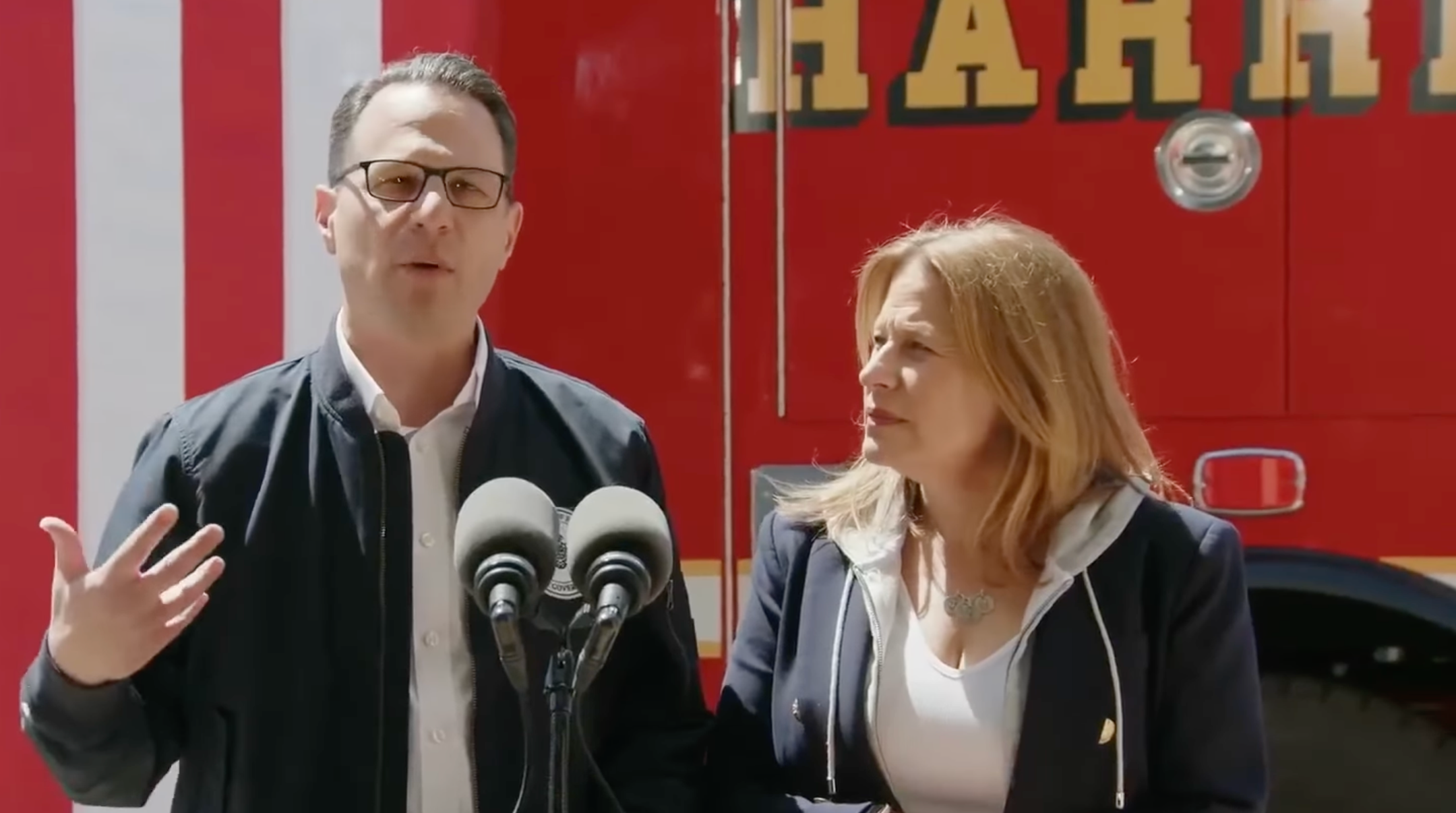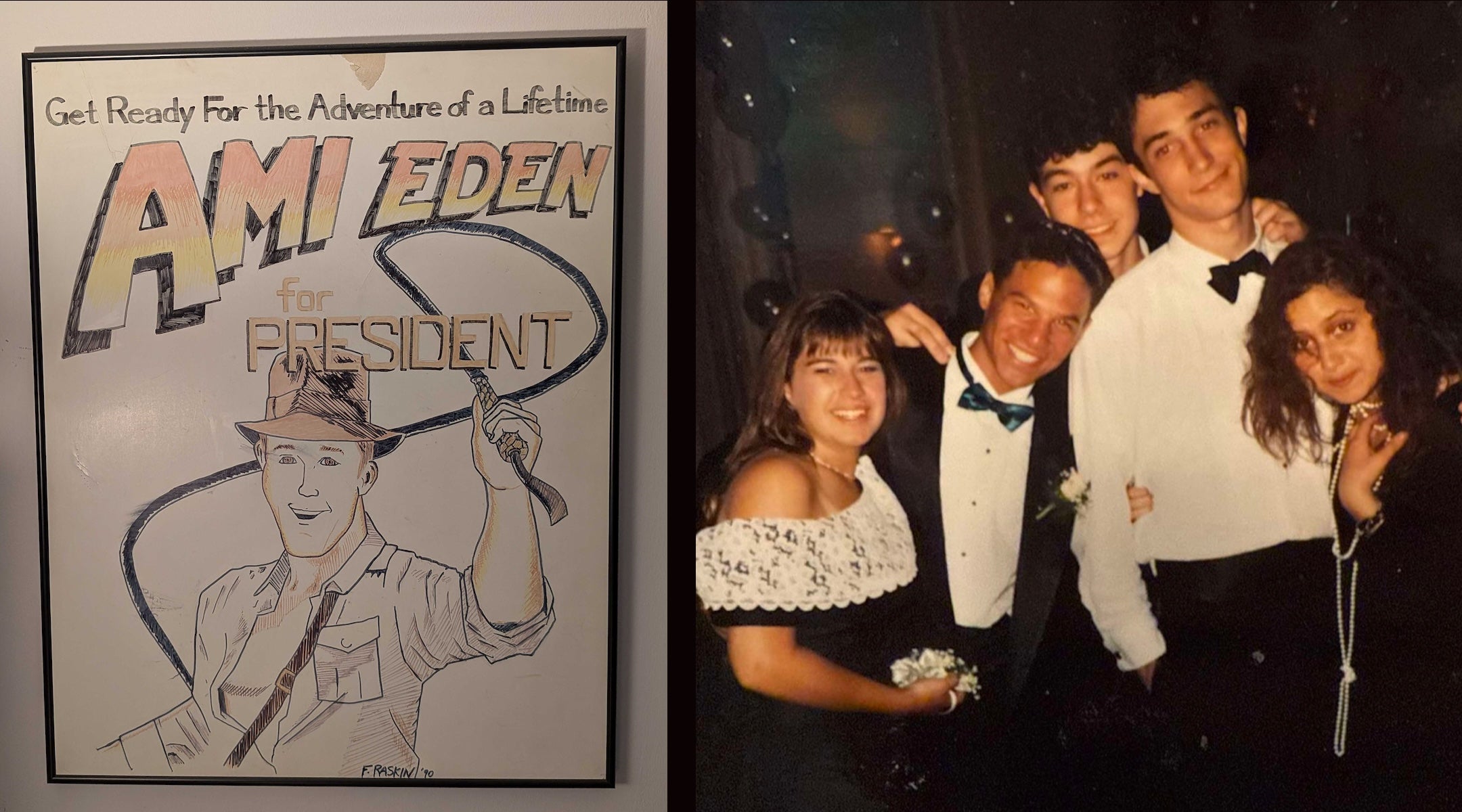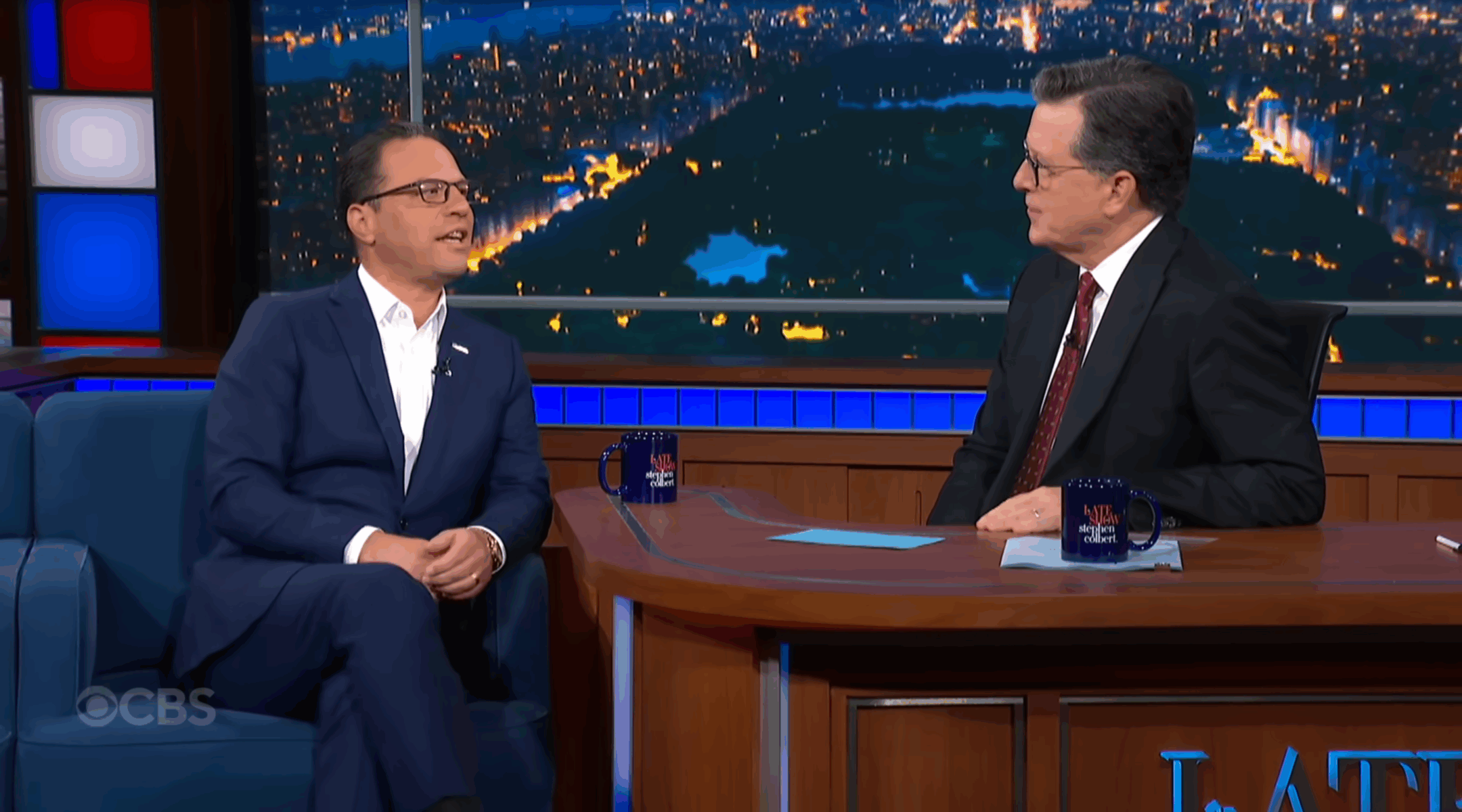When Pennsylvania Gov. Josh Shapiro showed up on “The Late Show” last week, Stephen Colbert asked him a very important question: “Have you ever lost an election?”
Shapiro chuckled before recounting his getting “whupped” and finishing third in 11th grade when he ran for student body president.
The governor forgot to mention who won that race (it was me) or why he lost — the mother of all campaign promises (an ice cream vending machine in the student lounge) and the best campaign poster ever (a portrait of the candidate as Indiana Jones courtesy of Fred Raskin, now a film editor who works with the likes of Quentin Tarantino and James Gunn).
Shapiro may have left out the key details of that 1990 race at Akiba Hebrew Academy, a middle school and high school in suburban Philadelphia now known as Jack M. Barrack Hebrew Academy, but he did showcase the style and themes that could make him a formidable candidate in 2028.
Colbert kicked off the interview by asking about the April arson attack on the governor’s mansion where he and his family were sleeping just hours after hosting a public Passover seder.
After recounting the details of the attack, Shapiro quickly turned spiritual. Not some anodyne, won’t-offend-atheists spiritual. Good old-fashioned amen spiritual.
“And I’ve got to say, for as dark as that moment was, Lori and I found a whole lot of light in the days after from the people of Pennsylvania,” Shapiro said, to a burst of applause.
“I’m a prayerful person,” he continued. “I pray every day. But I never had people praying for me like that. People from all different faiths, all different backgrounds. And, Stephen, I know this sounds crazy, but I actually could feel their prayer, I actually felt strengthened by their prayers, and that helped me and Lori and our four children heal.”

Pennsylvania Gov. Josh Shapiro speaks outside a Harrisburg firehouse, April 17, 2025. (Screenshot)
From there, Shapiro recounted how Pennsylvania’s first family organized a “thank you” meal cooked by celebrity chef Robert Irvine for the North Penn Township Volunteer Fire Company, repeating a story he told publicly in the immediate wake of the arson. According to Shapiro, the unit’s 83-year-old chaplain approached him and said: “We don’t share the same faith, but every single member of our fire department wrote you this letter, and signed it and I wrote my personal favorite prayer on the back for you.”
“That prayer he wrote,” Shapiro told Colbert, “is a prayer that I know as the priestly blessing, a prayer that I make over my children each night from the Old Testament. He used that prayer because it was important to him, a person of Christian faith, giving it to a person of Jewish faith to help us heal. And what I learned from that experience is prayer is not only powerful, but it can be universal and can lift people up regardless of how they worship. There is a universality to it and it was a beautiful thing.”
Faith. Prayerful. Old Testament.
Shapiro was the target of plenty of razzing last summer over his Obama-style speechmaking. Yet when it comes to talking about his Jewishness, he channels the late Joseph Lieberman, still the only Jew to be tapped for a major-party presidential ticket.
Like the Democratic 2000 vice-presidential candidate, Shapiro wears his religion on his sleeve – and talks about being a practicing Jew in terms that can feel more Archbishop Ryan than Akiba Hebrew.

Ami Eden’s winning campaign poster from the 1990 Akiba Hebrew Academy student body president race, at left, and a prom picture featuring future Pennsylvania Gov. Josh Shapiro, second from left (with his now-wife Lori), and Eden to his right. (Courtesy Ami Eden)
Lieberman penned a book-length love letter to Shabbat and titled it “The Gift of Rest: Rediscovering the Beauty of the Sabbath.” Shapiro kicked off his run for governor with a biographical campaign spot that started out with his letting voters know that he always makes it “home Friday night for Sabbath dinner, because family and faith ground me.”
It’s true that most Jews say Shabbat or Shabbos when talking about the sabbath – not to mention say they were davening when being prayerful or cite the Torah or Bible when quoting from the Old Testament. Of course, most Jews aren’t explaining their religious identity to the wider voting public while running for statewide or possibly national office.
Call it pandering. Call it bridge-building.
Either way, so far it’s working.
Not just on Colbert, where the audience ate it up.
Shapiro delivered a whupping of his own in the 2022 governor’s race, with a 56.5%-41.7% win over Republican State Sen. Doug Mastriano. Trump’s choice in the GOP primary, Mastriano was a MAGA favorite who had promoted Christian political power, flirted with the QAnon conspiracy movement and took part in the Jan. 6 Capitol protests after advancing discredited claims of widespread election fraud in 2020.
During the race, Mastriano tried to paint Shapiro – then the state’s attorney general – as the out-of-touch candidate, saying he had “disdain for people like us” because he attended and then sent his children to a “privileged, exclusive, elite” school. That line of attack went over about as well as a Dallas Cowboys T-shirt at an Eagles game.
For those keeping score, Shapiro not only trounced Mastriano – he outperformed Trump’s 50.4% win in the state two years later, in part because of his relatively strong showing for a Democrat in red parts of the state.
Colbert asked Shapiro about Pennsylvanians who voted for both him and Trump, giving the governor a chance to show off a maneuver not many prominent Democrats can pull off so seamlessly: unabashedly bashing Trump (he might do Lieberman vibes Friday night, but never forget he’s all Birds Sunday afternoon), while simultaneously praising and speaking to the concerns of his voters and their communities.
Shapiro dismissed Trump as talking a good game, but turning his back on his supporters, saying Trump’s Big Beautiful Bill will lead to 310,000 people in the state being cut from Medicaid, including 154,000 in areas that voted for Trump.
As for those voters who went for both Shapiro and Trump: “I talk to them every day. I show up in their communities every day. These are good folks,” the governor said, describing them as fed up with a government system that has often ignored them and their problems, while seeing others as getting an unfair advantage. “I show up in communities where Democrats often don’t go, especially in our rural areas. And I not only listen to them, I learn from them. I go back to those communities and I deliver for them.”
Shapiro has clearly internalized important lessons from his failed fly-by-night high school campaign that was undone by a failure to understand what mattered most to the voters (it’s the ice cream sandwiches, stupid!).
Since then he’s pulled of an uninterrupted string of impressive victories, built on a formula of outworking his opponents on the campaign trail, intense message discipline and a successful bet that what the voters of Montgomery County and the rest of the Keystone state want most is a highly disciplined common-sense problem-solver focused on getting things done, who comes with plenty of God and apple pie. The big question now is whether that statewide winning formula melts away in the heat of a national race as Democrats turn left in search of their own chaotic and polarizing disruptor, or provides much-needed relief to an exhausted silent majority, like the perfect cone on a sweltering summer day.
JTA has documented Jewish history in real-time for over a century. Keep our journalism strong by joining us in supporting independent, award-winning reporting.







